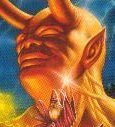Apart from the obvious cool factor of that, I took a lot away from the first day of the seminar in Finland.
Once again, Kenneth goes into the pedagogical and technical aspects of the session; I don't need to belabour the point. I will go more into the personal development dimensions of the seminar.
I start with a somewhat suprising revelation - I may be passionate about the sword, but I am not entirely prepared to give up my life entirely for it. If the others here have a love affair with swordsmanship, I have probably a strong friendship with it.
That said, I've always been most interested in swordsmanship as a personal development tool, and that is what I shall focus on.
- Our martial art comes off a 16th century manuscript. Note I do not say "based off" or "derived from" a manuscript. For all intents and purposes it is the same martial art taught off the manuscript - or as close to it as we can get to it. While I have learnt content from the book, I've never learnt it in the order that the book presented. This small difference in the seminar and the way I normally learn it makes a vast difference to me; it allows me a bigger insight into the historical way the martial art is taught and gives the thought processes behind using the martial art more structure. In short, there is value in keeping it real.
- There are times where I am tempted to make things up when I don't know something. That is just ego. The irony is, the manuscript itself provides notes on variations, and possible applications. Often what I can make up is far inferior to what has already been provided and thought through by people who have a far more vested interest in the outcomes of these applications. In short, if you don't know something, check it up. Don't make up shit.
- In the course of learning this martial art, mistakes creep in. These may be small mistakes like hunching when you should be extending, not raising your arms enough and the such. These small mistakes matter, and happen because the human body is inherently lazy. To make sure your body does things properly, you must train. In short, practice, practice, practice. Don't just think about it.
- In the course of practising the martial arts, the simple moves work a lot better than complicated moves. The reason is that the simple can be executed without too much fuss. In the chaos of a fight, a simple move is more likely to be used and executed well than a complicated one. Do not mistake simple for shallow. In short, simplify, simplify, simplify.


No comments:
Post a Comment